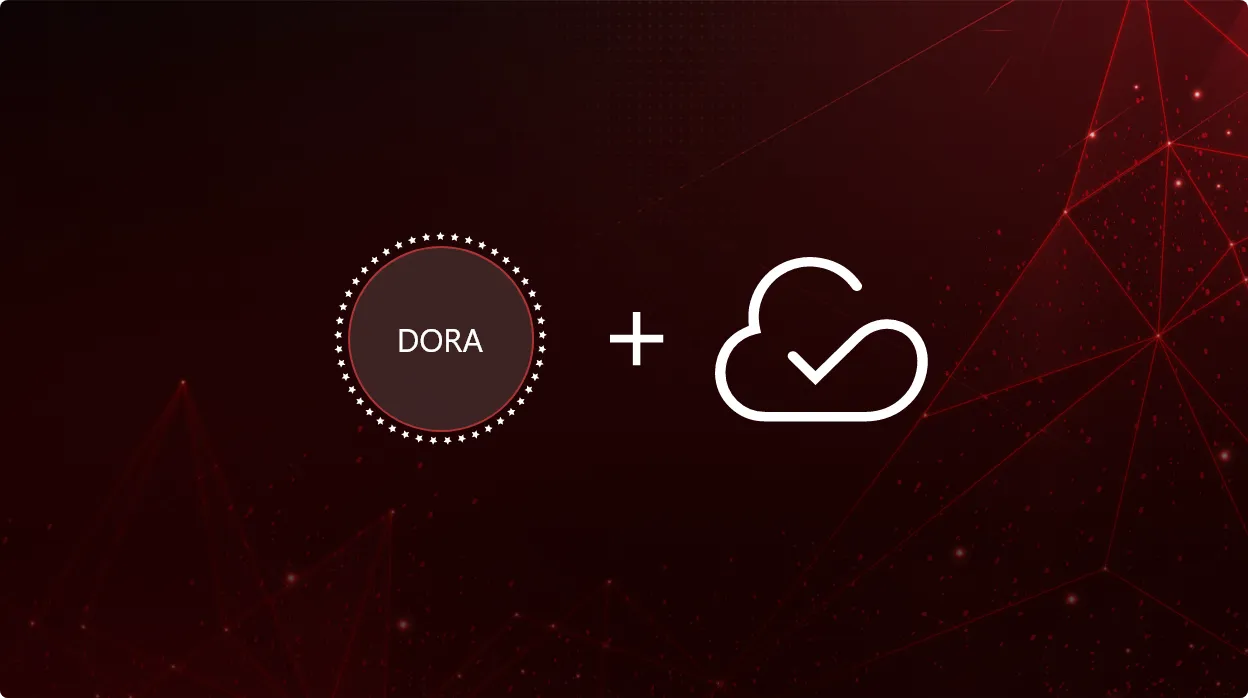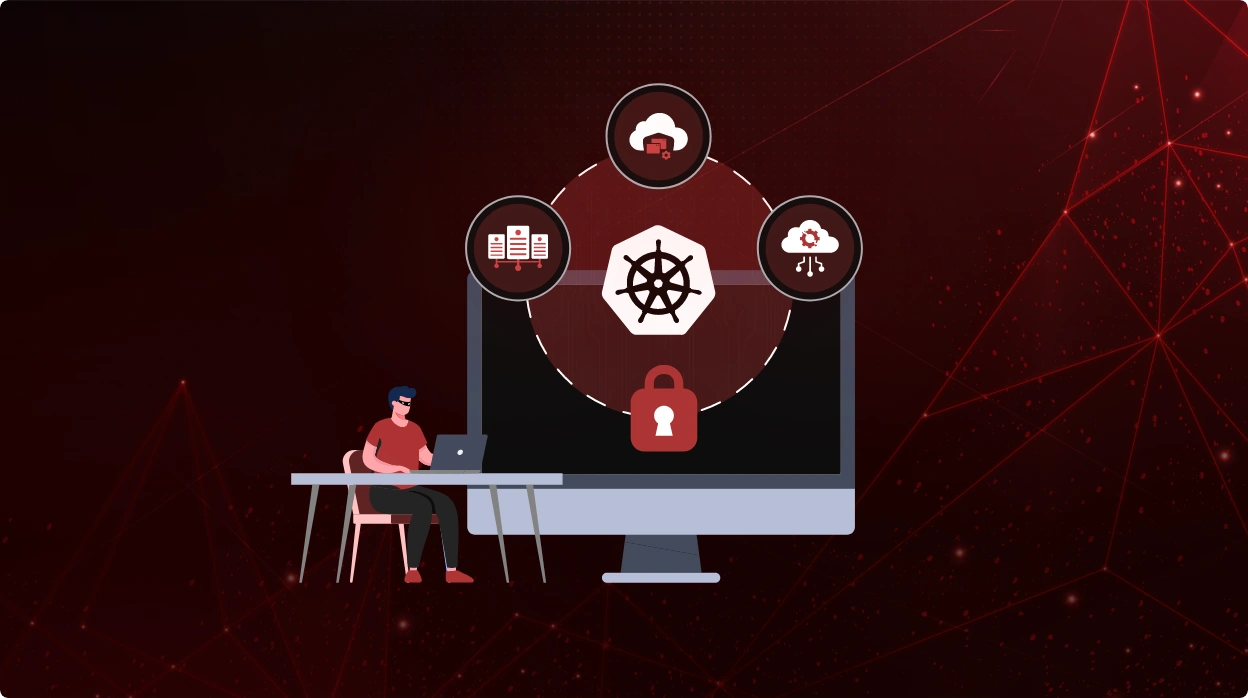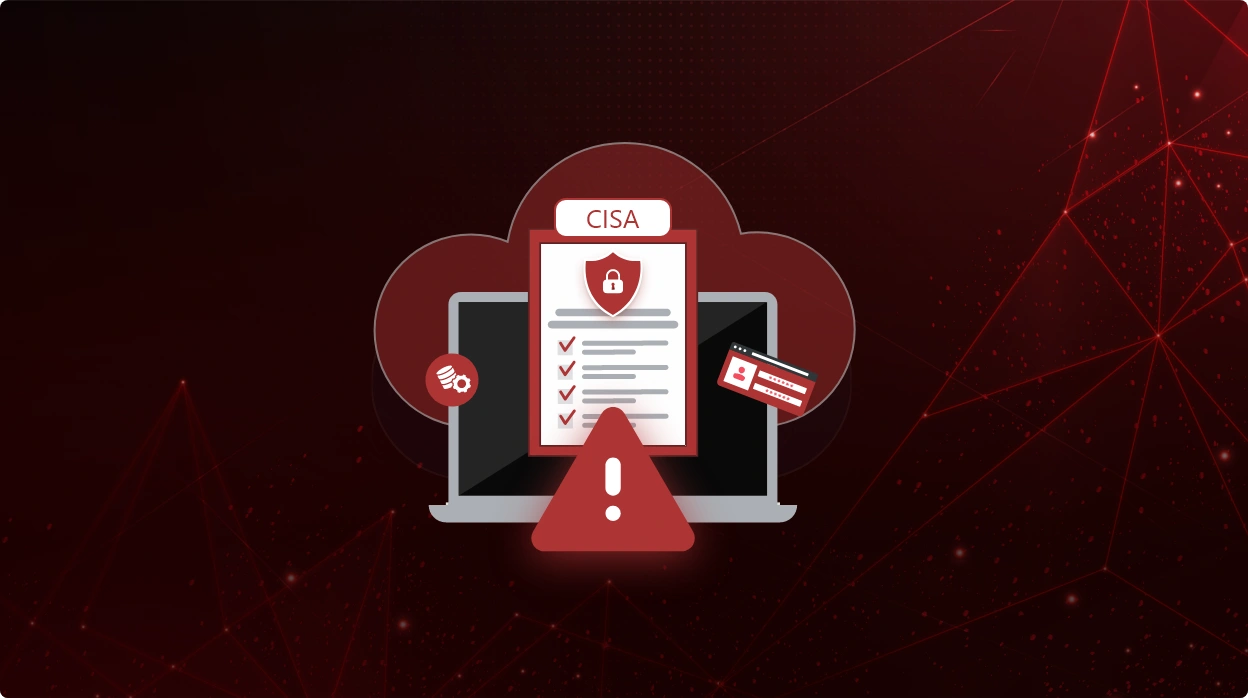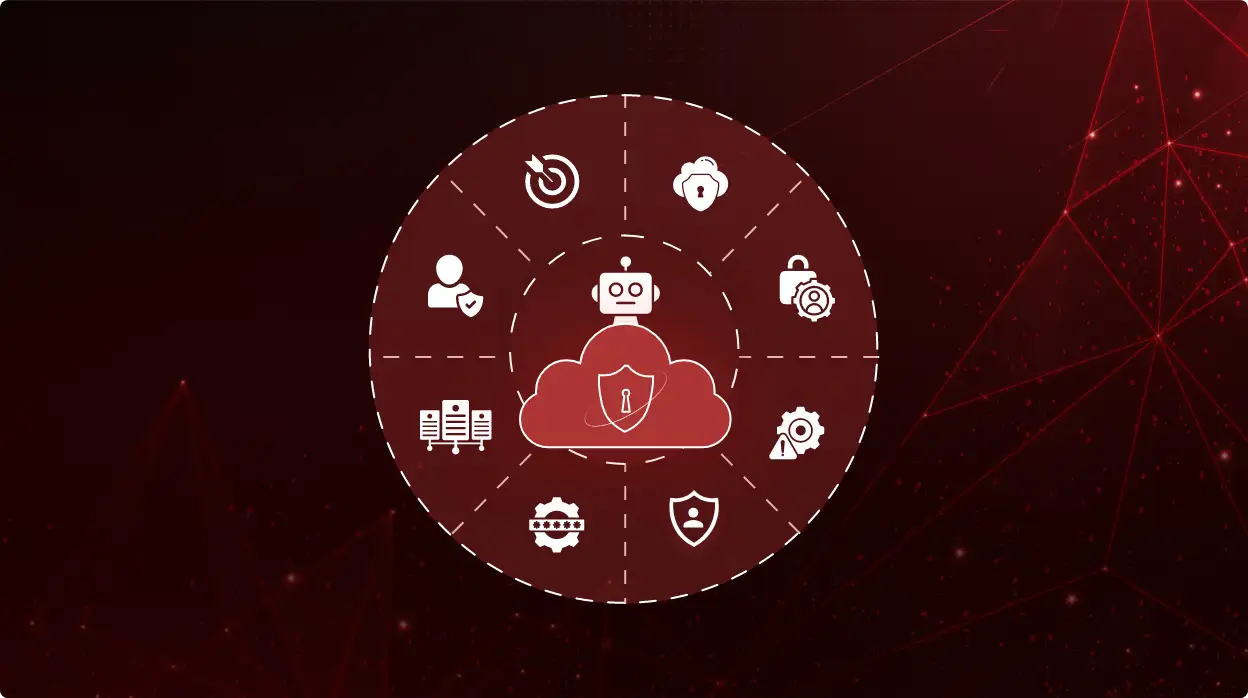
CheckRed Editorial
Digital Operational Resilience Act (DORA)
Understanding the Digital Operational Resilience Act (DORA) is important for cloud compliance, especially for organizations operating within the EU’s financial sector. As a comprehensive regulatory framework, DORA defines specific requirements and standards that financial institutions and their third-party service providers must adhere to. Financial institutions leveraging cloud services must ensure that their cloud environments comply with DORA’s mandates.

What is Digital Operational Resilience Act (DORA)?
The Digital Operational Resilience Act (DORA) is a regulatory framework established by the European Union (EU) to bolster cybersecurity and operational resilience within the financial sector. It aims to mitigate the risks posed by cyber threats and disruptions to information and communication technology (ICT) systems. DORA sets forth guidelines and standards for ICT risk management, incident reporting, resilience testing, and third-party risk management, with the overarching goal of ensuring the continuity of financial services during cyberattacks or other ICT-related incidents.
Scope of application
DORA applies to financial institutions regulated at the EU level, including banks, payment institutions, insurance companies, and fintech firms. Additionally, it encompasses third-party ICT service providers that support the operations of these financial entities. The regulation mandates compliance with its provisions to strengthen the overall resilience and security posture of the financial ecosystem.
Key components of DORA
DORA is structured around five core pillars:
- Risk management
- Incident management
- Resilience testing
- Third-party risk management
- Information sharing
Risk management: Financial entities must establish robust ICT risk management frameworks to identify, assess, and mitigate cyber risks. This includes defining risk tolerance levels, developing business continuity plans, and implementing security controls for critical assets.
Incident management: DORA mandates prompt reporting and classification of major ICT-related incidents, along with the implementation of effective incident response and recovery strategies.
Resilience testing: Financial institutions must undergo regular resilience testing to evaluate the effectiveness of their ICT defenses and ensure operational continuity. This involves defining testing methodologies, procedures, and frequency.
Third-party risk management: DORA requires oversight of third-party ICT service providers, including critical cloud service providers, to ensure compliance with regulatory standards. Financial entities must establish contractual arrangements and conduct due diligence on third-party dependencies.
Information sharing: The regulation encourages the exchange of cyber threat information among trusted financial communities to enhance situational awareness and response capabilities.
Compliance deadlines and penalties
DORA provides a transitional period for compliance, with the final deadline set for January 17, 2025. Financial entities must align their operations with DORA’s requirements within this timeframe to avoid penalties.
Failure to comply with DORA may result in penalties imposed by designated regulators, including administrative fines and potential criminal sanctions. These penalties highlight the importance of timely and thorough compliance with the regulation.
Impact of DORA on cloud compliance
DORA’s implementation significantly impacts cloud security practices, particularly in the areas of ICT risk management and incident reporting. With the increasing adoption of cloud services in the financial sector, organizations must ensure that their cloud environments adhere to DORA’s stringent requirements. This entails effectively managing risks associated with cloud infrastructure, data storage, and third-party service providers, as well as promptly reporting and addressing any ICT-related incidents that occur within the cloud.
Challenges for cloud compliance
One of the primary challenges for cloud compliance under DORA is the complex nature of managing third-party service providers in the cloud. Financial institutions often rely on various cloud service providers to host critical infrastructure and applications, making it challenging to maintain visibility and control over security measures. Ensuring that these third-party providers comply with DORA’s regulations, including risk management and incident reporting standards, requires robust oversight and contractual agreements.
Another challenge lies in ensuring resilience testing and incident management within cloud-based infrastructures. Traditional methods of conducting resilience tests and managing incidents may not seamlessly translate to the cloud environment, where dynamic and scalable architectures are prevalent. Financial entities must adapt their practices to effectively test and validate the resilience of cloud services and respond swiftly to incidents while adhering to DORA’s requirements.
How CheckRed’s complete cloud security solution aligns with DORA
Given the unique challenges posed by cloud compliance under DORA, there is a growing need for specialized tools and solutions tailored to address cloud-specific compliance requirements. Generic security measures may not suffice to meet the intricacies of DORA’s regulations in cloud environments. Organizations require sophisticated cloud-native security solutions like CheckRed, which are capable of providing comprehensive visibility, governance, and control over cloud assets and configurations.
CheckRed’s CNAPP, CSPM, CIEM, and CWPP platform offers advanced security measures specifically designed for cloud-native applications. It ensures the protection of applications and data hosted in cloud environments against a wide range of cyber threats. CheckRed also provides organizations with SaaS Security Posture Management (SSPM) solutions.
CheckRed’s platform addresses key aspects of DORA, including risk management, incident reporting, and third-party risk management. CNAPP, CSPM, CWPP, CIEM, and SSPM offer functionalities that align with DORA’s requirements, such as continuous monitoring, threat detection, and compliance reporting. The platform integrates seamlessly with existing cloud environments and workflows, streamlining compliance efforts and ensuring holistic cloud security. The platform aggregates data from multiple sources, providing a unified view of security posture and enabling automated responses to security incidents.
Benefits of CheckRed
- Enhanced visibility and control: CheckRed’s platform provides organizations with enhanced visibility and control over their cloud environments, allowing them to identify and mitigate security risks proactively.
- Continuous compliance monitoring and reporting: CheckRed automates compliance monitoring and reporting processes, reducing the burden on security teams and ensuring timely adherence to DORA’s requirements.
- Simplified management of cloud security policies: CheckRed simplifies the management of cloud security policies and configurations, enabling organizations to enforce consistent security measures across their cloud infrastructure.
Given the complexities of DORA compliance, organizations need powerful cloud security solutions to meet regulatory requirements effectively. CheckRed’s complete cloud security solutions help organizations address specific aspects of DORA while enhancing visibility, control, and resilience in cloud environments.
See CheckRed in Action
Dive into the future with our interactive demo
and explore the possibilities.
Related Posts




